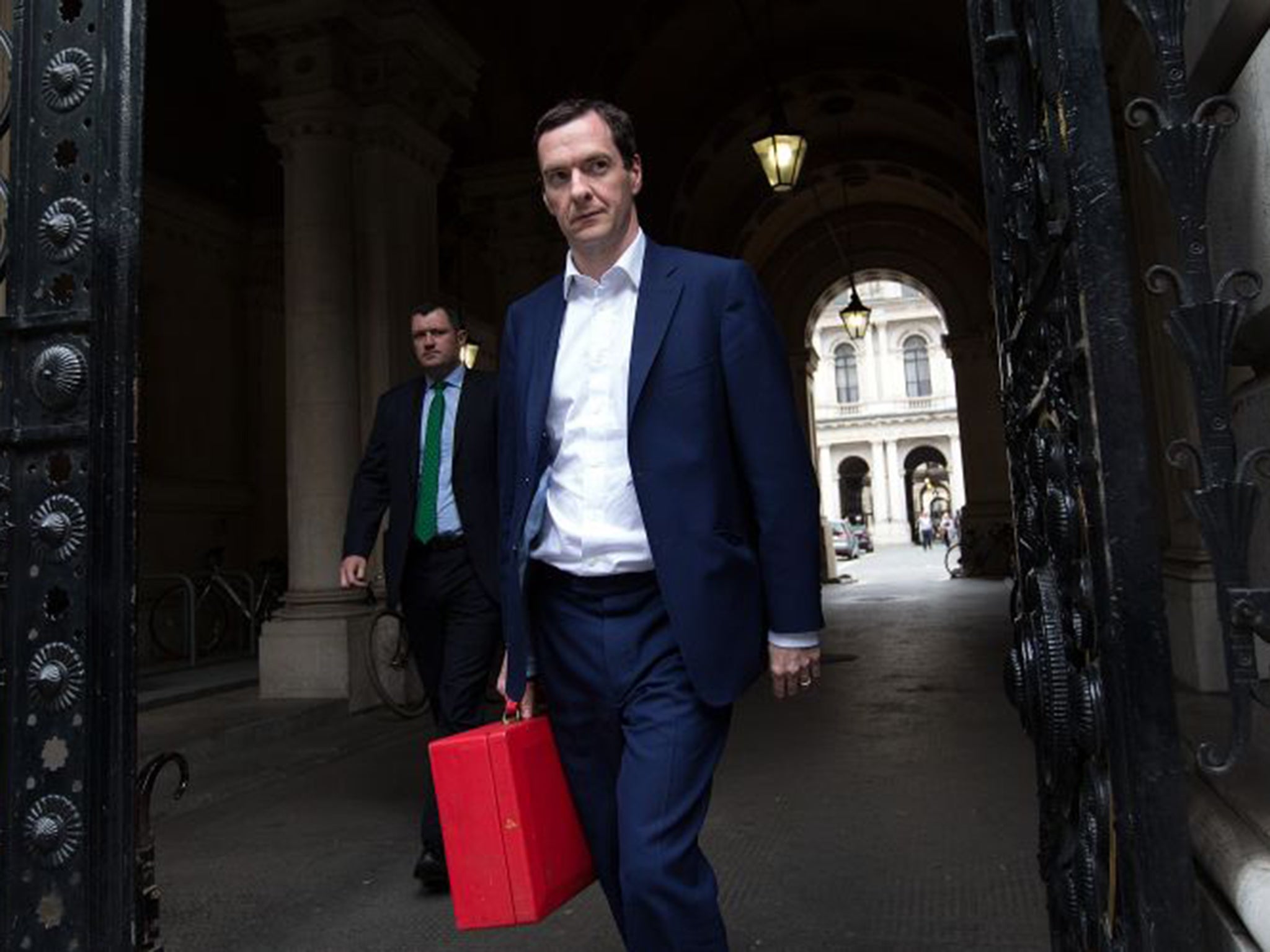Budget 2015: We gave the Tories a mandate, now we will see what we voted for
Circumstances favour the Chancellor as he delivers his Budget, but the deficit still has a long way to fall


It is going to be one of those weeks. On any rational tally a referendum in a country of 11 million people should not be dominating the political headlines – and certainly not the economic ones – to the extent that it has. Greece is 0.3 per cent of the world economy. But the plight of its people is symptomatic of deeper flaws in the European model and that is why their decision will have such resonance.
Our own democratic system gave our new government the mandate for the economic programme that will be outlined by Chancellor George Osborne on Wednesday. We voted for fiscal orthodoxy, actually something rather close to the fiscal policy of Germany, and that policy has broad-ish support from Labour too. Now we will get a sketch of what this orthodoxy might look like.
Osborne was unlucky in his previous term due to a slower-than-expected economic recovery and accordingly slower-than-expected narrowing of the fiscal deficit. We did not dip back into recession, unlike the eurozone, but it was only in the past two years that we picked up pace. Now it looks as though luck has turned, in that growth is running above its long-term trend – it was 3 per cent last year – and this outperformance will persist for another year or two. So, other things being equal, the deficit should start to narrow faster than previously projected. That will be a relief because there is still a long way to go.
This week, there will be two things to look for. First, how much better the outlook is relative to the regular Budget we had in March. Second, the detail of policy changes, particularly on spending: what the public sector might look like in 2020.
Budget 2015: "Why do we call social security payments 'benefits'?"
Osborne to axe housing subsidies for higher income earners
Osborne to raise levels for inheritance tax in first Tory-only Budget
Osborne is set to get tough with further cuts in public spending
This second area is really important. All governments across the developed world will face huge pressure from a combination of debt and demography. As interest rates rise government borrowing costs will rise, so debt service will be a bigger drain on revenues, squeezing the funds for everything else. Britain has a relatively benign demographic outlook: our problem will be to accommodate a still-rising workforce rather than facing declining tax revenues from a shrinking one. But even so, we face rising costs from health care and underfunded pension provisions. To meet those costs, not only does government have to become more efficient; our entire society has to become more efficient too.
No government and no country has successfully met this challenge yet. Japan has faced the most extreme version of ballooning debts and a shrinking workforce, and the combination has been associated with stagnation. So, it is no model at all. Nor is southern Europe. Greece is the obvious extreme example, having real GDP back to where it was in 2000 and with unpayable national debts. But the economic performance of Italy and Portugal is almost as bad, with virtually no growth over 15 years either.
It would be presumptuous to suggest that the world will look to Britain for a model for how to reinvent government. We are not that admired, being pretty much middle-of-the-pack in terms of the efficiency of our public sector. At a macro-economic level we are not admired at all, for obvious reasons, though the five years of coalition retrenchment has generated some grudging respect. That forms the base on which the Chancellor will have to build a more effective public sector.
My own view is that the developed world is in the early stages of what will be a 30-year slog to restore fiscal discipline. A fixed exchange rate is one way of providing that discipline, but that is a harsh and in the case of Greece counter-productive way of doing so. Other countries are bringing in legislation. Germany amended its constitution in 2009, with the Schuldenbremse or “debt-brake” requiring the federal government to keep its structural deficit below 0.35 per cent of GDP by 2016. This device has been adopted elsewhere, for example by Austria. So, we are not pioneers. The legal changes Mr Osborne proposes to anchor fiscal policy are part of a global pattern. He made a start with the Office for Budget Responsibility in the last parliament. Now there is statutory change, plus the showbiz reactivation of the Committee of the Commissioners for the Reduction of the National Debt for the first time in 150 years.
But if we are not pioneers, we are interesting nonetheless, for discipline has to be buttressed by competence. If the budget does create the framework for leaner but also more consumer friendly services, then we will be noticed abroad. We are becoming less tolerant of poor public service, but while objectively quality may be improving there is plenty of slack. So, an interesting week for British voters to see some more detail on what they voted for. I suspect all we really want is competence – but then that is what the Greeks surely want too.
Join our commenting forum
Join thought-provoking conversations, follow other Independent readers and see their replies
Comments
Bookmark popover
Removed from bookmarks